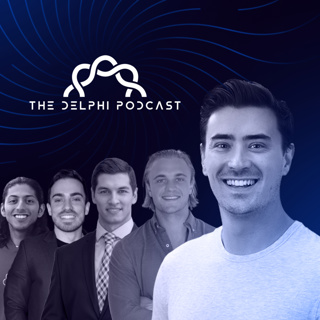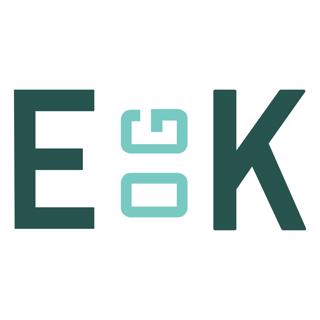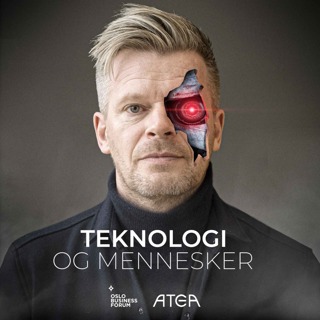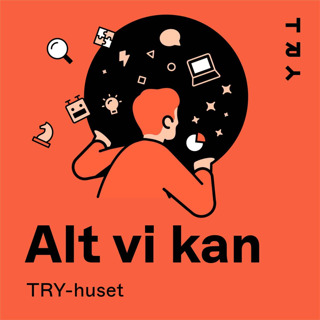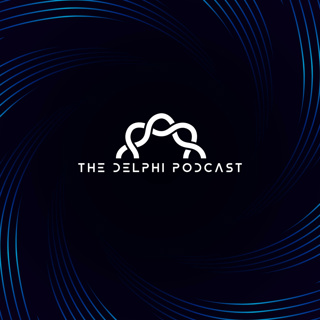
Jason Williams: Selling FastMed For $500M to Deploying $130M in Crypto
Host Tom Shaughnessy talks to Jason Williams, co-founder of Morgan Creek Digital - a fund in the crypto space. Jason previously grew and sold FastMed, an urgent care provider for $500M and started Full Tilt Capital, a Venture Fund that deployed $18M into 63 deals. On this episode we discuss His take on COVID19 given Jason founded a massive urgent care business Issues with the health ecosystem in the United States and what will change The government's response to the crisis, including the payroll protection program (PPP). What the new normal looks like after COVID19 The Bitcoin Halving that is coming up Jason's investment thesis at Full Tilt Capital, his current thesis at Morgan Creek Digital, and what has changed thus far. What Jason looks for in founders and why he would pass on an investment. Convincing traditional entities, especially pension funds to invest in Morgan Creek Digital Resources Mentioned: Jason's Twitter: https://twitter.com/JWilliamsFstmed Chain Reaction Twitter: https://twitter.com/chainpodcast Tom Shaughnessy Twitter: https://twitter.com/Shaughnessy119 Support The Show ZenLedger is the official tax software of Chain Reaction for crypto investors and accountants. Get a 15% discount when you use code Chain15. https://bit.ly/3bundEl Visit Delta Exchange For A $10 Welcome Bonus! https://www.delta.exchange/Tom Disclosures: This podcast is strictly informational and educational and is not investment advice or a solicitation to buy or sell any tokens or securities or to make any financial decisions. Do not trade or invest in any project, tokens, or securities based upon this podcast episode. The host may personally own tokens that are mentioned on the podcast. Tom Shaughnessy owns tokens in ETH, BTC, CKB, STX, SNX, RUNE, sUSD and HNT. Lets Talk Bitcoin is a distribution partner for the Chain Reaction Podcast, and our current show features paid sponsorships which may be featured at the start, middle and/or the end of the episode. These sponsorships are for informational purposes only and are not a solicitation to use any product or service. Music Attribution: Cosmos by From The Dust | https://soundcloud.com/ftdmusic Music promoted by https://www.free-stock-music.com Creative Commons Attribution 3.0 Unported License https://creativecommons.org/licenses/by/3.0/deed.en_US
22 Apr 20201h 10min

Sia’s David Vorick: Outcompeting Amazon Web Services, a $35B Revenue Giant
Host Tom Shaughnessy talks to David Vorick, CEO, Co-Founder, and Lead Developer of Sia and Skynet. They discuss the benefits of a decentralized, free Internet, competing with Amazon Web Services, cloud storage pricing, security, privacy, and more. Key Points: Open source programming encourages innovation. Sia gives users back control over their data and privacy. Just because a certain technology exists, does not mean it should be leveraged. Episode Highlights: Sia gives users a cloud experience without requiring users to commit to a cloud provider. Now they have to make Sia competitive with AWS, because it isn’t enough to just make something decentralized, it has to also be competitive. David is confident that their technology is superior and that they can reach a point where they have the momentum to overtake Amazon. Sia held a hackathon where someone figured out how Sia could support livestreaming on its existing code, which developers had previously thought wasn’t easily doable, so something like that wouldn’t have happened in a centralized system. Sia currently secures its data through encryption. Traditional web apps store their data for their users on AWS, but in a decentralized model like this, users have complete control. Users pay for the bandwidth and the data themselves, so they aren’t losing money or revenue to a separate corporation hosting the data like you would on YouTube, for example. David doesn’t like the current trend of platforms preemptively censoring or filtering content and thinks it leads to limiting good faith conversation on the internet. Ultimately, users should have control over whether they opt into or out of filtering and censoring content for themselves. Amazon Web Services charges about $20 per terabyte per month, which is roughly the same as simply buying a new hard drive every month. Sia, by comparison, charges $2 per terabyte per month. The price of a Sia token is independent from the price of their storage. Data on the Sia network naturally gravitates towards high-performing nodes. Sia’s purpose is to be a technology that could be shut down or abandoned by David but still live on and still function. They’re trying to get to a world where infrastructure is taken care of for content creators, and those users don’t need to rely on advertising and product placement to get paid. High levels of tracking exist and corporations have access to these tools and this information, and we have no way of knowing whether they are using these dystopian tools responsibly. Quotes “We’ve seen with the open source world, when you open things up and allow tinkerers to mess around just because they have an idea, the amount of innovation you get substantially outpaces anything that a single centralized entity or corporation could do.” –David Vorick “I think that it should be possible to monetize without ads and it should just be automatic. If you create something that adds value to a bunch of people’s lives, you should automatically be paid for doing that without having to i
20 Apr 202049min

Framework Ventures’ Vance and Michael: Redefining Active Management
Host Tom Shaughnessy talks to Vance Spencer and Michael Anderson, the GP's of Framework Ventures. On this episode we discuss Why the fund doesn't invest in Ethereum killers Their investments in Synthetix, Chainlink, Edgeware and Futureswap Paths to decentralization with founders and leading teams Taking involvement as a fund to the next level with investments. Not just offering advice and connections and capital, but resources (developer resources and financial such as liquidity into protocol investments) . Resources Mentioned: ... Chain Reaction Twitter: https://twitter.com/chainpodcast Tom Shaughnessy Twitter: https://twitter.com/Shaughnessy119 ZenLedger is the official tax software of Chain Reaction for crypto investors and accountants. Get a 15% discount when you use code Chain15. Support The Show ZenLedger is the official tax software of Chain Reaction for crypto investors and accountants. Get a 15% discount when you use code Chain15. https://bit.ly/3bundEl Visit Delta Exchange For A $10 Welcome Bonus! https://www.delta.exchange/Tom Disclosures: This podcast is strictly informational and educational and is not investment advice or a solicitation to buy or sell any tokens or securities or to make any financial decisions. Do not trade or invest in any project, tokens, or securities based upon this podcast episode. The host may personally own tokens that are mentioned on the podcast. Tom Shaughnessy owns tokens in ETH, BTC, STX, SNX, RUNE, CKB, sUSD and HNT. Lets Talk Bitcoin is a distribution partner for the Chain Reaction Podcast, and our current show features paid sponsorships which may be featured at the start, middle and/or the end of the episode. These sponsorships are for informational purposes only and are not a solicitation to use any product or service.
13 Apr 202051min

Casperlabs CEO Mrinal Manohar: How Wall Street Wealth Matures To Blockchain
Host Tom Shaughnessy talks to Mrinal Manohar, the CEO of Casper Labs. I really enjoyed speaking with Mrinal since he brings an extensive amount of professional experience at major firms such as Bain Capital and Sagard Holdings to now leading Casper Labs. Mrinal has a real understanding of how the world works, how major firms with tens of billions make their investment decisions and where blockchain fits into the world. Mrinal covers everything about Casper Labs, the blockchain's roadmap, its relationship with Ethereum's community, how they are attracting developers and so much more. Mrinal's BIO: A technology enthusiast from a young age, Mrinal was an early contributor to BitTorrent and other open source projects. He first found Bitcoin in 2012. Mrinal received his Masters in Computer Science from Carnegie Mellon University. He was an associate for Bain & Co., then a private equity associate at Bain Capital. Before leading CasperLabs, Mrinal was a sector head in Technology/Media/Telecom at Sagard Holdings About Casper Labs: CasperLabs is a decentralized blockchain and smart contracting platform that scales for real-world usage and simplifies experiences for developers and end-users. Resources Mentioned: Casper Labs Website: https://casperlabs.io/company/meet-our-team/ Casper Labs Twitter: https://twitter.com/meetCasperLabs Chain Reaction Twitter: https://twitter.com/chainpodcast Tom Shaughnessy Twitter: https://twitter.com/Shaughnessy119 ZenLedger is the official tax software of Chain Reaction for crypto investors and accountants. Get a 15% discount when you use code Chain15. Support The Show ZenLedger is the official tax software of Chain Reaction for crypto investors and accountants. Get a 15% discount when you use code Chain15. https://bit.ly/3bundEl Visit Delta Exchange For A $10 Welcome Bonus! https://www.delta.exchange/Tom Disclosures: This podcast is strictly informational and educational and is not investment advice or a solicitation to buy or sell any tokens or securities or to make any financial decisions. Do not trade or invest in any project, tokens, or securities based upon this podcast episode. The host may personally own tokens that are mentioned on the podcast. Tom Shaughnessy owns tokens in ETH, BTC, STX, SNX, RUNE, sUSD and HNT. Lets Talk Bitcoin is a distribution partner for the Chain Reaction Podcast, and our current show features paid sponsorships which may be featured at the start, middle and/or the end of the episode. These sponsorships are for informational purposes only and are not a solicitation to use any product or service.
8 Apr 202058min

Dan Held and Paul Sztorc: Debating Bitcoin’s Security
Host Tom Shaughnessy talks to Dan Held, Director of Business Development for Kraken Digital, and Paul Sztorc, an independent Bitcoiner. They debate the Bitcoin security model, with Paul feeling skeptical that fee rates will climb and Dan believing that fees are already growing and could subsidize Bitcoin security solutions. Dan’s post (Bitcoin’s Security is fine) and Paul’s original post (Security Budget in the Long Run) for context on the episode. Episode Highlights: Paul wrote a blog post last year proposing that we should use merged mining to keep security costs low. Ultimately, Paul is skeptical that fee rates could climb to over $50 per transaction as Dan believes. Paul notes that the fee rate to the miners is different from the total fees on a transaction. Dan explains that when you transact across a blockspace, you have to consider the transaction fee and the volatility fee, and a space with a lower transaction fee may have a substantially higher volatility fee that ultimately nullifies your savings. Dan believes a linear model doesn’t represent the growth in fees, you have to look at a logarithmic model. Paul believes people generally won’t care about rising fees unless they rise above a certain threshold. Dan uses other asset classes like wire payments and their associated fees to look at equivalents in blockspace. There’s a distinction to be made between the cost of a Bitcoin as a commodity and the cost of the blockspace to transact Bitcoin. The forces of supply and demand work differently on Bitcoin itself versus blockspace. Paul agrees with Dan that there are a lot of positive feedback loops within Bitcoin cost trends. Dan and Paul agree that the network effect of an asset is crucial. They agree that Bitcoin provides a consistent monetary policy that has created its staying power through market volatility that we haven’t seen since 1929. Key Points: There’s a significant debate about looking at transaction fees alone versus the full cryptocurrency exchange fee structure. It’s important to look at volatility as a potential cost when transacting cryptocurrency. The network effect of an asset is one of its most important components. Tweetable Quotes “It’s not the case that new supply automatically lowers the price because it’s negligible when it’s less than $1-2, is my claim… People prefer having $1 or $2 to not having it, I don’t think they significantly care… I agree with you that there are many frictions.” –Paul Sztorc “If the security budget collapsed that means the value of Bitcoin either collapsed or no one’s transacting. It’s circular logic to say no one cares about Bitcoin, which means the security budget is meaningless bc Bitcoin doesn’t need to be secure bc no one values it.” –Dan Held Resources Mentioned: Chain Reaction Twitter: https://twitter.com/chainpodcast Tom Shaugh
6 Apr 20201h 16min

Tavi Costa and Guest Host Kevin Kelly: Macro Madness Series (Repost)
(Originally published February 1, 2020) On this exclusive Macro Matters Series, guest Host Kevin Kelly talks to Octavio “Tavi” Costa, Global Macro Analyst at Crescat Capital. Tavi discusses Crescat’s top investment themes, the favorable backdrop for precious metals, how the macro environment could impact Bitcoin, and much more. Key Points Crestcat is focused on China due to statistics predictive of major currency devaluation moving forward. Alongside Bitcoin, gold and other precious metals are poised to grow in value. Looking at the US job market, including unemployment rates, Tavi and his team believe we are at the peak of the U.S. business cycle. Quotes “The entire global financial market is addicted to cheap money and monetary and fiscal intervention. There’s no doubt about that. And what we see here today is that higher and higher units of debt are generating less and less growth.” –Tavi Costa “The reason I don’t mess with other cryptocurrencies is because I just don’t fully understand—I barely understand Bitcoin itself, to be honest, so it’s been hard for me to get my arms around the other ones.” –Tavi Costa “I believe that modern monetary theory is a total fallacy.” –Tavi Costa Episode Highlights What was Tavi’s upbringing like and how did he find his way to becoming a global macro analyst & portfolio manager? Crestcat is focused on the US business cycle, the China credit bubble, and precious metals. There are clear cracks in the US economy that lead Crestcat to be cautious. Several metrics indicate that we’re going to see a deceleration in economic growth. Countries like China are engaging in monetary experimentation aimed at driving inflation, which lowers debt burdens. Over the next ten years, Tavi predicts we will see higher commodity prices. Tavi is starting to see a correlation between Bitcoin and gold, partly because both assets are supply-constrained. We’re at a peak level of reliance on central banks. Bitcoin provides a huge opportunity for investors in terms of asset allocation while the likelihood of fiat currency debasement rises. These hypotheses are based on looking at the most overvalued currencies in the world, like in China where there’s unprecedented debt levels, economic slowdown, and signs of inflation. China is poised to see a major devaluation of its currency. Historically, when emerging markets collapse, gold tends to rise. For Tavi to reevaluate these predictions, there would have to be a fulfillment of the George Soros theory of reflexivity where the economy feeds on its own to improve itself. The next trends to look for are with the jobs market in the US. Support The Show Visit Delta Exchange For A $10 Welcome Bonus! Disclosures: This podcast is strictly informational and educational and is not investment advice or a solicitation to buy or sell any tokens or securities or to make any financial decisions. Do not trade or invest in any project, tokens, or securities based upon this podcast episode. The host may personally own tokens that are mentioned on the podcast. Tom Shaughnessy owns tokens in ETH, BTC, XTZ, STX, SNX, RUNE, sUSD and HNT. Lets Talk Bitcoin is a distribution partner for the Chain Reaction Podcast, and our current show features paid sponsorships which may be featured at the start, middle and/or the end of the episode. These sponsorships are for informational purposes only and are not a solicitation to use any product or service. Music Attribution: Cosmos by From The Dust | https://soundcloud.com/ftdmusic Music promoted by <a href='https://www.free-stock-music.com/
3 Apr 202055min

Kathleen Breitman: From Founding Tezos to Building One of the Most Highly Anticipated Blockchain Games
Host Tom Shaughnessy talks to Kathleen Breitman, the co-founder of Tezos and Coase, whose first game is Emergents, a highly anticipated blockchain base game. After following Tezos for years, it was incredible to be able to talk with Kathleen about her journey. We covered a lot on Tezos, layer-1 blockchains, governance and upgrading mechanisms. Post this, we discussed Coase and Emergents, all of the details that go into designing a blockchain based game from cards and designs to game play and even Magic the Gathering. This conversation was an absolute blast. Kathleen's BIO: Kathleen Breitman is the co-founder of Tezos, a blockchain-based smart contract platform with an on-chain governance mechanism to coordinate and push upgrades to its network. Previously, she was a senior strategy associate for R3, a blockchain consortium of more than 70 financial firms. She has also worked at Accenture, Bridgewater Associates and the Wall Street Journal. Support The Show ZenLedger is the official tax software of Chain Reaction for crypto investors and accountants. Get a 15% discount when you use code Chain15. https://bit.ly/3bundEl Visit Delta Exchange For A $10 Welcome Bonus! https://www.delta.exchange/Tom Disclosures: This podcast is strictly informational and educational and is not investment advice or a solicitation to buy or sell any tokens or securities or to make any financial decisions. Do not trade or invest in any project, tokens, or securities based upon this podcast episode. The host may personally own tokens that are mentioned on the podcast. Tom Shaughnessy owns tokens in ETH, BTC, STX, SNX, RUNE, sUSD and HNT. Lets Talk Bitcoin is a distribution partner for the Chain Reaction Podcast, and our current show features paid sponsorships which may be featured at the start, middle and/or the end of the episode. These sponsorships are for informational purposes only and are not a solicitation to use any product or service. Music Attribution: Cosmos by From The Dust | https://soundcloud.com/ftdmusic Music promoted by https://www.free-stock-music.com Creative Commons Attribution 3.0 Unported License https://creativecommons.org/licenses/by/3.0/deed.en_US
1 Apr 202056min

ZenLedger’s Pat Larsen: Navy Pilot To Crypto Startup CEO
Host Tom Shaughnessy talks to Pat Larsen, CEO, and co-founder of ZenLedger. They discuss the issues with filing taxes when you have cryptocurrencies, what gaps ZenLedger fills, possible future use cases, and more. Episode Highlights: Pat went to the US Marine Academy and became a Navy officer, completing two combat tours. He proceeded to work in investment banking and tech, including for Amazon and several startups, before founding ZenLedger. Between his time in the Navy and his education, Pat is experienced both in math and science and in risk-taking and decision making. ZenLedger is a browser-based cryptocurrency tax software. The software handles the crypto portion of your taxes and allows you to export the data to use in their main tax filing. Because Congress hasn’t passed many laws regulating or providing guidance on taxation of crypto, so ZenLedger has to lean on the IRS for that information on complex things like mining, staking, airdrops, etc. One of ZenLedger’s founding offerings was their customer service and automation. TurboTax is a partner with ZenLedger. They generate new customers in various ways from talking about tax-loss harvesting to organic outreach on podcasts to building partnerships. It only takes about 10 minutes to use the software as a new user; the biggest step is connecting to your exchanges. ZenLedger demonstrates that you’re covering your bases and making good-faith efforts to file your taxes correctly. The automatically generated 1099-K forms from exchanges only show your aggregate trading, not your net capital gains and losses. Pat and Tom think a possible future use case could be using ZenLedger to file your basic income tax if it ends up being earned entirely through cryptocurrency. Pat’s Navy background taught him to make contingency plans for everything. Right now in the midst of all the macroeconomic changes happening due to COVID-19, Bitcoin has been largely unaffected. Key Points: Most CPAs have no idea how to handle cryptocurrency in tax filings. Using ZenLedger saves you hours of aggregating information manually. Tweetable Quotes “The IRS obviously cares. They’ve sent out tens of thousands of warning letters. They’re using blockchain analytic software. So I think the enforcement actions are stepping up, there will be audits, so you just want to take care of yourself.” –Pat Larsen “At its core, we’re saving you time, we’re giving you accurate reports, and we’re giving you peace of mind whether you’re in a corporate capacity or an individual capacity.” –Pat Larsen “You’re going big wave surfing & you just have to pick a place that has good waves & you need to trust that you’ve trained with your skills to be able to ride those waves, & if you fall down as you inevitably will, that you’re gonna get back up & ride another wave.” –Pat Larsen Support The Show ZenLedger is the official tax software of Chain Reaction for crypto investors and accountants. Get a 15% discount when you use code Chain
30 Mar 202040min
